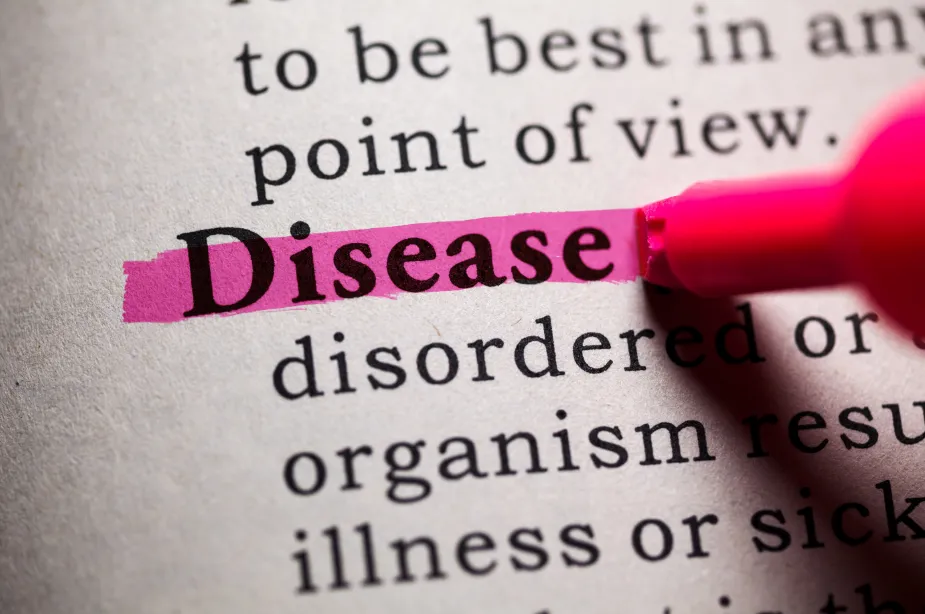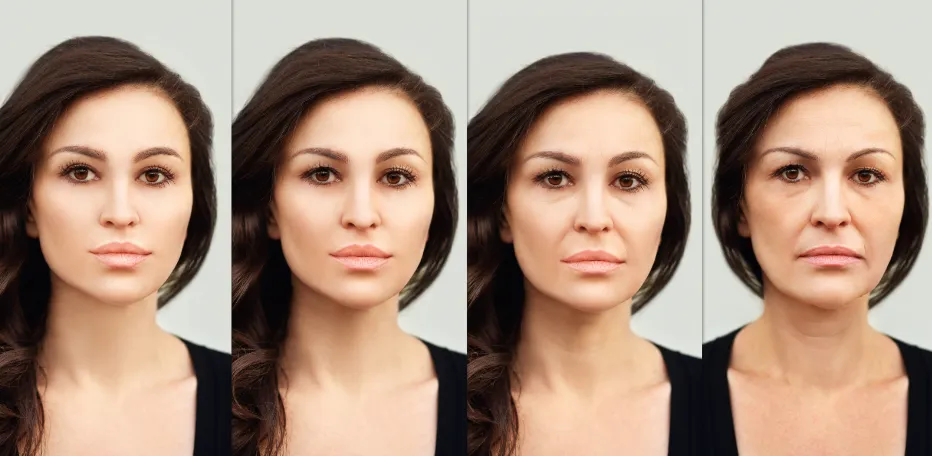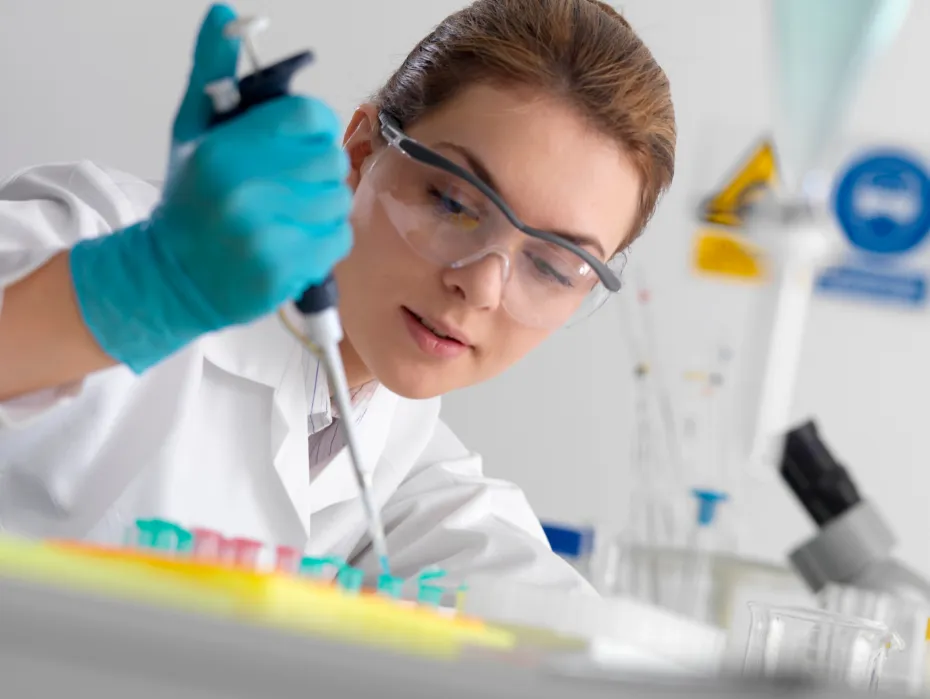Slow Aging by Categorizing it as a Disease
Introduction:
The concept of aging as a disease may seem strange at first, but when we consider that a disease is a condition that reduces function and eventually leads to death, it becomes clear that aging fits this description.
Furthermore, viewing aging as a disease opens up new possibilities for medical interventions and research. By reclassifying aging as a disease, it becomes a target for treatment and prevention rather than an inevitable part of life that we must accept.

One key argument for classifying aging as a disease is its significant impact on our quality of life. As we age, our bodies and minds gradually decline, leading to a loss of physical and cognitive abilities. This decline in function often results in an increased risk of developing age-related diseases such as cardiovascular disease, Alzheimer's, and cancer. These diseases further reduce our quality of life and can ultimately lead to death.
Additionally, treating aging as a disease allows us to shift our focus toward developing interventions to slow down or reverse the aging process. With advancements in medical technology and our understanding of the cellular and molecular mechanisms underlying aging, scientists and researchers can now explore various strategies to extend healthy lifespans. These include interventions such as caloric restriction, genetic manipulation, and regenerative medicine.
The potential benefits of treating aging as a disease are enormous. Not only could it help individuals live longer, healthier lives, but it could also alleviate the burden on healthcare systems worldwide. Delaying or preventing age-related diseases could significantly reduce the need for expensive medical interventions and long-term care, leading to substantial economic savings.
Furthermore, classifying aging as a disease may lead to increased funding and support for research in this field. Traditionally, aging has been seen as a natural process, and resources for studying and understanding it have been limited. However, by recognizing aging as a disease, governments, organizations, and philanthropists may be more inclined to allocate funding toward researching interventions and therapies to target age-related decline.
In conclusion, viewing aging as a disease has transformative implications for individuals and society. By recognizing the functional decline and eventual death associated with aging, we can focus on developing strategies to slow down or reverse this process. The potential benefits include improved quality of life, reduced healthcare costs, and increased research funding. It is time to challenge our traditional perception of aging and embrace the concept of aging as a disease to unlock new possibilities for the future of healthcare.
In his book Lifespan: Why We Age and Why We Don't Have To, Professor David Sinclair argues that redefining aging as a medical condition could revolutionize the way we approach age-related diseases and potentially extend human lifespans.
Understanding Aging and Disease:
Aging is a natural process that affects all living beings. However, some species, like certain mammals and simple animals, have the ability to live longer and avoid dying of old age. This raises the question of whether humans could also possess the potential for longer and healthier lives.

Nevertheless, certain species, particularly certain mammals and simple animals, exhibit an intriguing ability to live extended lives and evade the perils of aging. This remarkable phenomenon prompts us to ponder whether humans, too, harbor the potential to achieve longer and more vibrant lifespans.
The notion that increased longevity could be attainable for humans is not unfounded. Extensive research in the field of gerontology has uncovered various mechanisms and genetic factors that influence the aging process. By understanding and manipulating these underlying determinants, it may be conceivable to extend the health span of individuals, minimizing the adverse effects associated with aging.
Advancements in medical science have already led to significant improvements in human longevity. The advent of vaccinations, antibiotics, and innovative medical interventions has contributed to a notable increase in average life expectancy. Nevertheless, the ultimate goal remains attaining longer, healthier, and more productive lives, free from age-related ailments and decline.
A key area of focus within the pursuit of extended lifespan is the field of anti-aging medicine. This interdisciplinary domain encompasses a range of scientific disciplines, encompassing genetics, biochemistry, and cellular biology, among others. Researchers within this field diligently strive to unravel the mysteries of aging, seeking to identify novel interventions that could delay or reverse the aging process.
Genetic studies have also played a significant role in shedding light on the potential for increased human longevity. Certain species of animals possess genes that confer exceptional resistance to the detrimental effects of aging, allowing them to thrive well beyond their expected lifespans. By studying these resilient creatures, scientists aim to uncover the genetic components responsible for their extraordinary longevity. This knowledge could pave the way for targeted genetic modifications in humans, potentially granting us a longer lease on life.
Furthermore, emerging fields such as regenerative medicine and stem cell research offer promising avenues for enhancing human lifespan. The ability to regenerate damaged tissues and organs and the potential to rejuvenate aging cells holds immense therapeutic potential. Through harnessing the power of regenerative medicine, it may become possible to restore and rejuvenate vital organs, staving off the degenerative effects of aging and unlocking the secret to prolonged health and vitality.
Despite the monumental strides made in understanding aging and its potential mitigation, it is vital to approach this subject with caution and ethical considerations. The pursuit of extended lifespan must be balanced with the preservation of quality of life, ensuring that increased longevity is accompanied by enhanced physical and cognitive well-being. Additionally, it is crucial to address the social, economic, and environmental implications of prolonged lifespans, adapting societal structures to accommodate an aging population.
In conclusion, while humans have made remarkable progress in extending their lifespans, the quest for even greater longevity and healthier aging remains an active area of scientific exploration. By leveraging the knowledge gained from genetics, regenerative medicine, and anti-aging research, we may uncover novel interventions that can potentially redefine the boundaries of human lifespan. Ultimately, the dream of living longer, healthier lives holds immense promise for individuals and society as a whole.
Professor Sinclair, a genetics expert at Harvard Medical School, believes that aging is caused by epigenetic changes. These changes are abnormalities that occur when cells process extra or missing pieces of DNA. These changes lead to the loss of information that keeps our cells healthy and functioning properly.
Hormesis and Longevity:
Hormesis is the concept that what doesn't kill you makes you stronger. In the context of aging, certain stressors, such as exercise and fasting, can activate protective genes and enzymes in the body. Sinclair's research has shown that these enzymes, called sirtuins, play a crucial role in protecting cell identity, repairing DNA, and boosting energy. By understanding the mechanisms behind hormesis, scientists can develop drugs and interventions that mimic the effects of a healthy lifestyle, potentially slowing down the aging process.
The Role of Genetic Engineering:
Advancements in genetic engineering have provided insights into the reversal of age-related changes at the cellular level. The loss of epigenetic information is believed to be the root cause of aging, similar to scratches on a compact disc. However, it is possible to restore this information and improve the functioning of cells and organs. Sinclair's team has developed artificial intelligence algorithms that predict biological age in mice, paving the way for similar models in humans. This progress in genetic technologies offers hope for life prolongation through targeted interventions.
The Potential of Pharmaceutical Development:
Sinclair's focus on pharmaceutical development aims to treat aging as a medical condition. One molecule of interest is NMN, found in every living cell, which boosts levels of the coenzyme NAD+ involved in critical processes like cellular energy production and DNA repair. Declining levels of NAD+ have been linked to various age-related conditions. By developing drugs that target NAD+ and other key molecules, it may be possible to slow down the aging process and improve overall health.

Lifestyle Factors and Aging:
In addition to pharmaceutical interventions, lifestyle factors play a significant role in aging. Sinclair practices calorie restriction, follows a mostly vegetarian diet, exercises regularly, and exposes himself to temperature extremes. These practices, along with tracking biomarkers and taking certain supplements, contribute to his overall health.
Calorie restriction, which involves reducing caloric intake without causing malnutrition, has been shown to promote various health benefits. By consuming fewer calories, the body's metabolism adapts to a more efficient state, enhancing cellular repair mechanisms and potentially slowing the aging process.
Additionally, a predominantly vegetarian diet, relying heavily on plant-based sources of proteins, vitamins, and minerals, promotes longer living. Minimizing the consumption of meat products reduces the intake of saturated fats and cholesterol, which have been linked to various health issues. Instead, focus on incorporating a diverse array of fruits, vegetables, legumes, and whole grains into my meals, providing ample nutrients for optimal bodily function.
Regular exercise is another vital component of a longevity health routine. Physical activity not only strengthens the cardiovascular system and promotes muscle tone but also stimulates the production of crucial molecules that support overall well-being. Engage in a combination of cardiovascular exercises, strength training, and flexibility workouts to maintain a well-rounded fitness regimen and ensure a robust physiological response.

In pursuit of improved health and longevity, you can also subject your body to temperature extremes. By regularly exposing your body to both cold and heat, it triggers beneficial adaptations within your system. Exposure to cold temperatures, for instance, stimulates the activation of brown adipose tissue—a type of fat that can burn calories to generate heat. Conversely, exposure to heat, such as through saunas or hot baths, promotes blood flow and induces heat shock proteins that aid in cellular repair and overall resilience.
It's also vital to monitor various biomarkers to gain insights into your body's internal workings. By monitoring markers such as blood glucose levels, cholesterol ratios, blood pressure, and inflammation, you'll be able to make informed adjustments to your diet and lifestyle to optimize your well-being.
Lastly, incorporating specific longevity supplements to address potential nutrient deficiencies and support cellular health can be a great life booster. These supplements often include molecules such as resveratrol, NAD+ precursors, and polyphenols found in plant-based sources. When used in appropriate amounts, these compounds have shown promising effects in cellular rejuvenation, energy production, and overall health maintenance.
The Future of Aging:
While some researchers, like Sinclair, believe that significant life extension is possible, others, like biomedical gerontologist Aubrey de Grey, see no inherent limit to how long humans can live. With advancements in late-onset interventions, the goal is to keep people mentally and physically functional at an old age. However, there will always be individuals who prefer a more natural approach to life and aging.
Conclusion:
The concept of aging as a disease challenges traditional notions of healthcare and research. By redefining aging as a medical condition, scientists like Professor David Sinclair are paving the way for new approaches to age-related diseases and potential life extension. Through genetic engineering, pharmaceutical development, and lifestyle interventions, the goal is to slow down the aging process and improve overall health. While immortality may remain elusive, the possibility of living longer and healthier lives is within reach.
